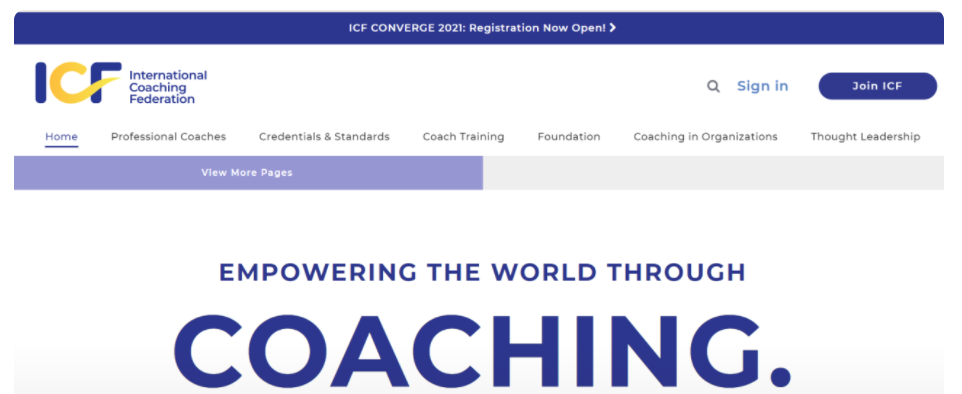Becoming a Coach? What Is ICF?
Recently, people have been reaching out to me wanting to know how to become a coach. Their general impression is that it’s easy to become a coach, and in some ways this is true.
Coaching is an industry that has no regulation yet. Anyone can say he/she is a coach and start coaching. So, it IS easy to become a coach.
However, it takes training and personal development to become a good coach!
My definition of a good coach is someone who can support another human being in establishing clarity on their challenges and goals. This empowers them to figure out how to make progress or make a difference. Coaching takes the patience to listen, the creativity to ask questions, the empathy to observe, and the authenticity to reflect so that one, as a good coach, can add value for his/her clients.
Many of these skills are against human nature. It is natural to be quick to judge or eager to give advice. Therefore, to hone these skills, basic coaching training is highly recommended. It will support one to rewire his/her neuropathy in the journey of becoming a good coach.
The other part of work is personal development. To become a good coach, one needs continuous personal development to obtain clarity, confidence, and compassion in order to have the capacity to develop others.
The International Coaching Federation (ICF) was established in 1995 and it has become the largest global coaching organization. It certifies coaches and coaching programs and guides the coaching profession with standards.
In June 2021, ICF adopted updated coaching competencies as follows
- Demonstrates Ethical Practice
- Embodies a Coaching Mindset
- Establishes and Maintains Agreements
- Cultivates Trust and Safety
- Maintains Presence
- Listens Actively
- Evokes Awareness.
- Facilitates Client Growth
Detailed definitions can be found on this web page https://coachingfederation.org/core-competencies
During the ICF coach credentialing process, these competencies are evaluated to determine if one can be certified as an ICF coach. Coaches who don’t have ICF credentials may have their narratives about ICF’s competencies and coaching approach. As an ICF coach since 2005, I support ICF’s coaching competencies. While following their guidance, I still have a lot of flexibility in building my own coaching approaches based on my clients’ needs. In my next blog, I will share more on ICF credentialing. Stay tuned.

